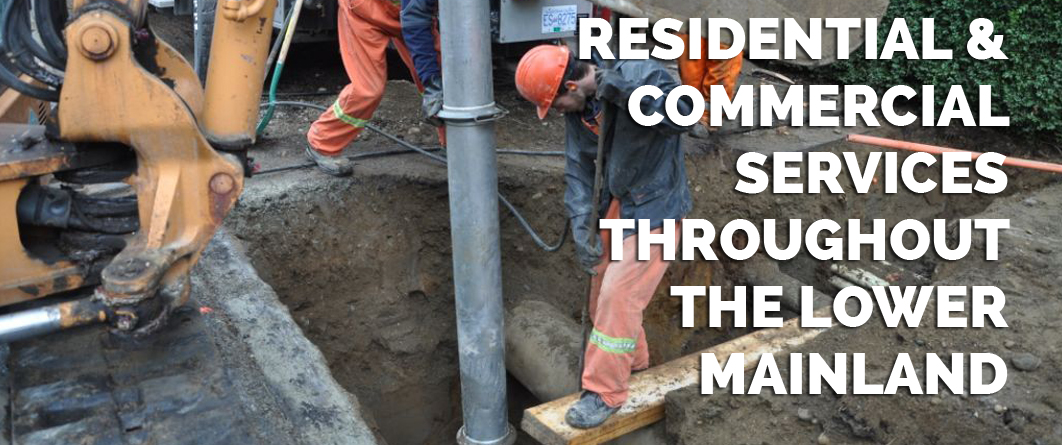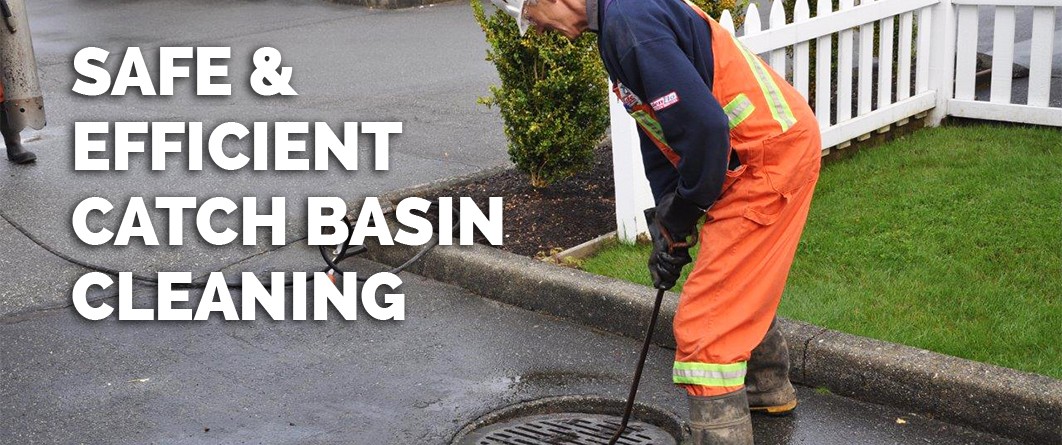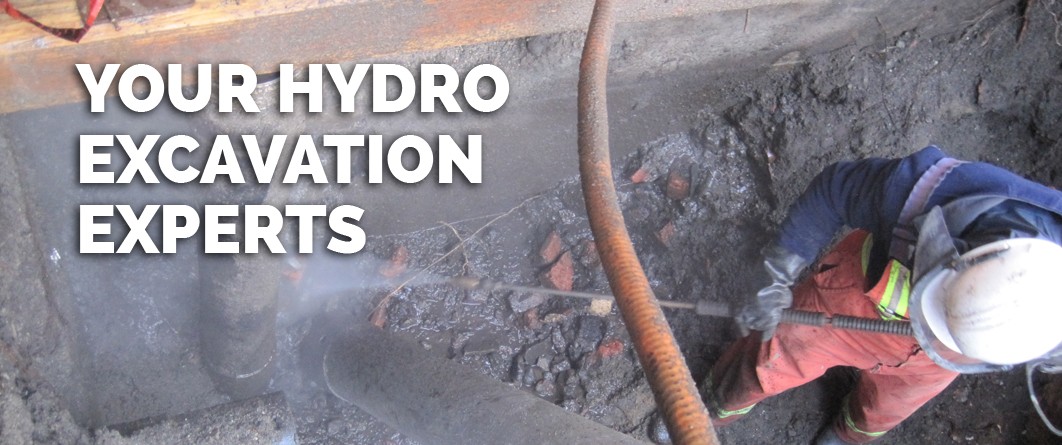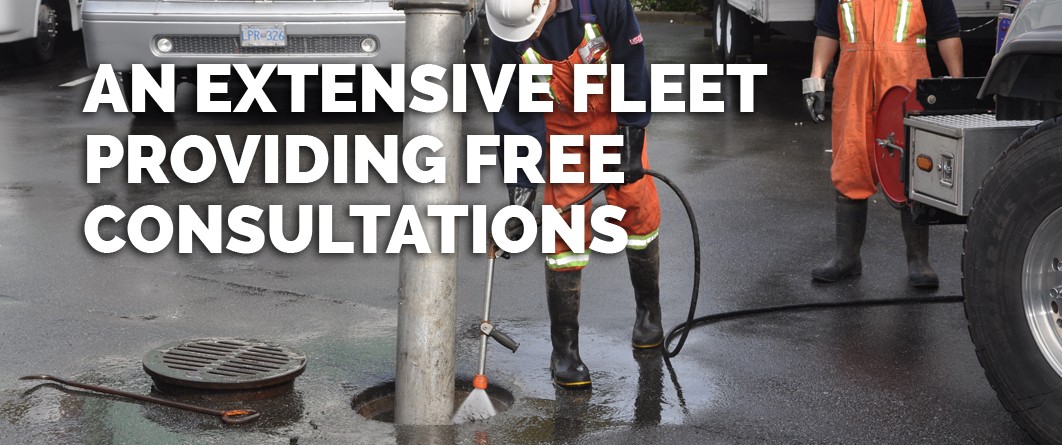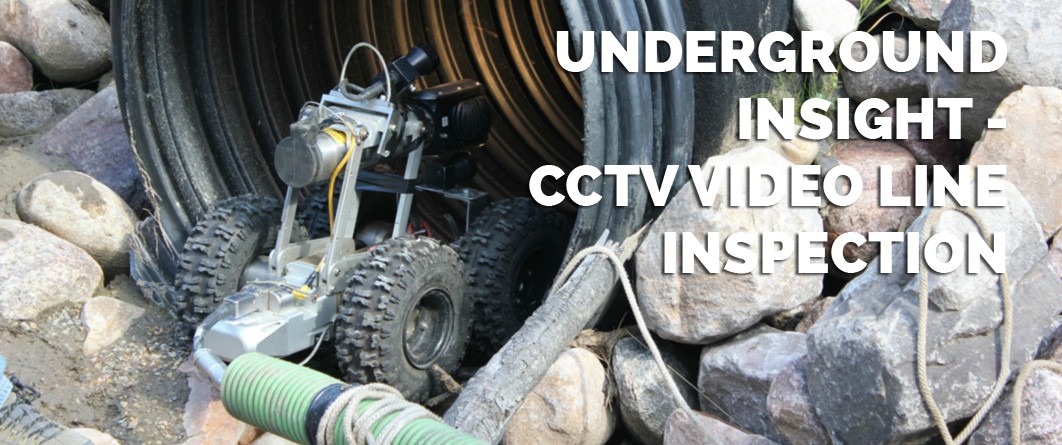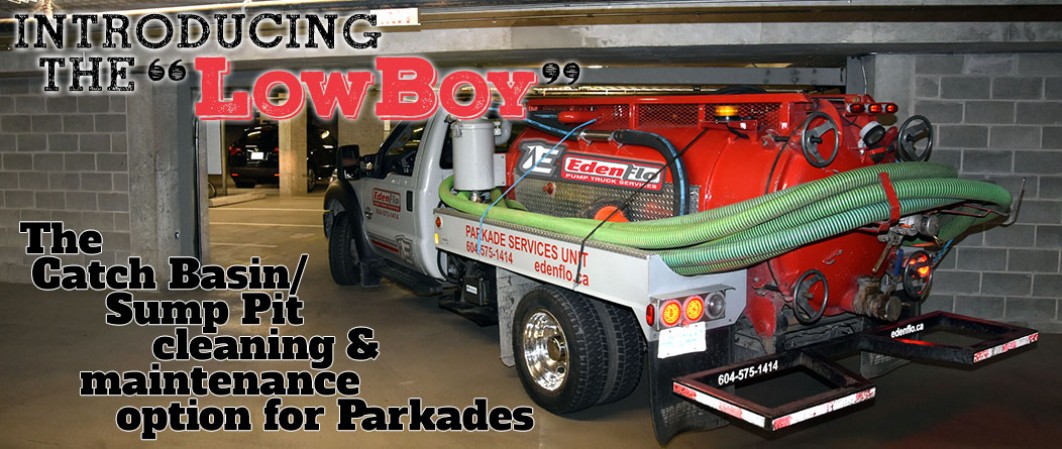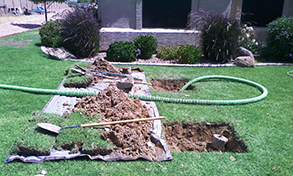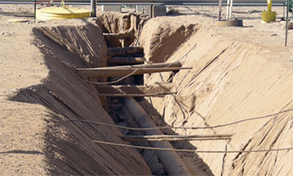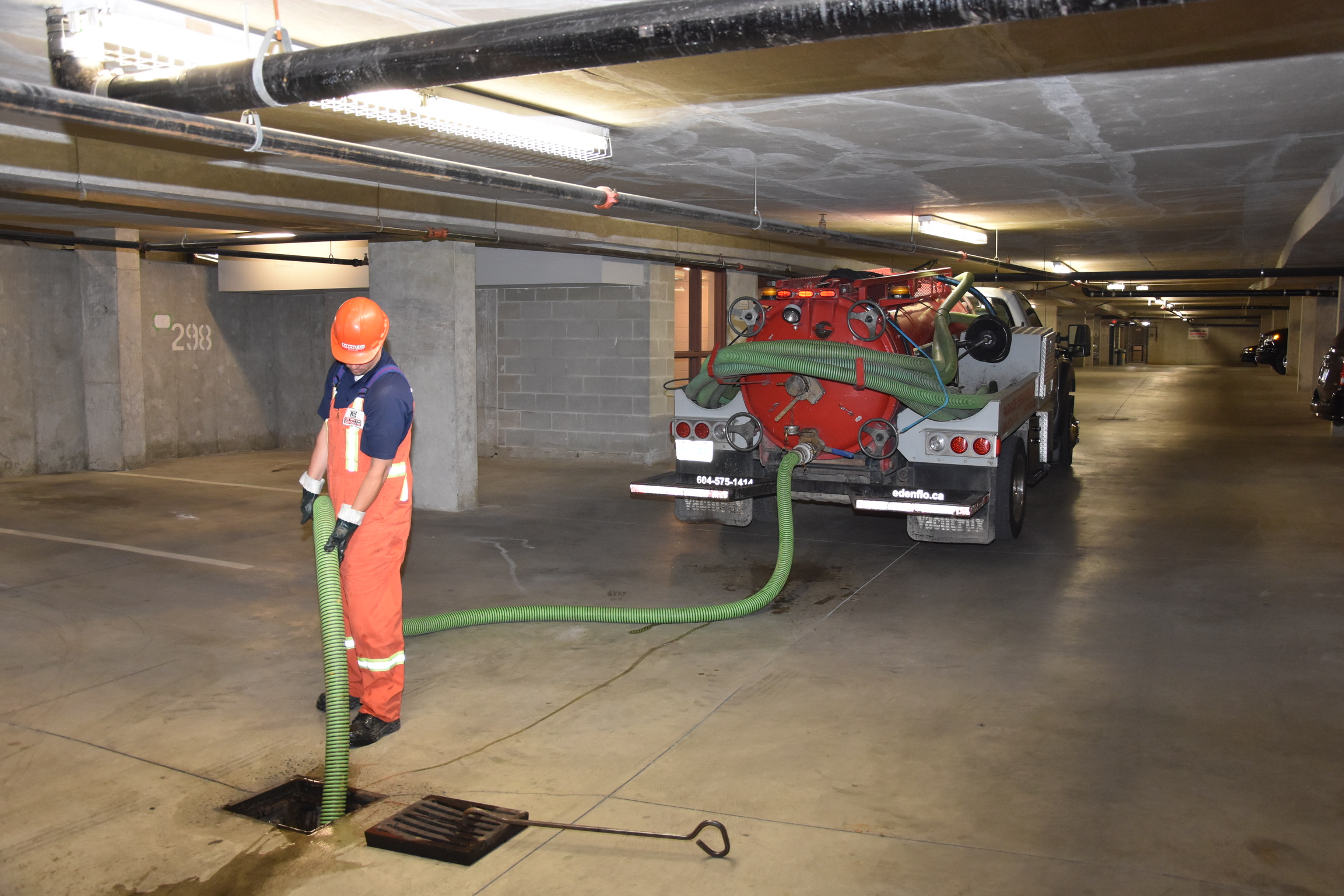
Underground parkades and low-ceiling garages in Vancouver present unique challenges when it comes to drain maintenance. For property managers and contractors, traditional drain cleaning equipment often can’t maneuver into these tight spaces. That’s where low-clearance solutions like low-boy vacuum trucks come in, offering effective drainage services without compromising access or safety.
This comprehensive guide covers everything you need to know about low-ceiling garage drain cleaning in Vancouver, from common drainage issues to the benefits of hydro vacuum services in confined environments.
Why Garage Drain Cleaning in Low-Ceiling Parkades is a Unique Challenge
Structural Constraints in Vancouver’s Underground Garages
Vancouver’s urban density means many buildings include underground parking with ceiling clearances as low as 6’8”. These tight conditions make it difficult — sometimes impossible — for standard vacuum and hydro jetting trucks to access critical drain lines. Structures often include pillars, ramps, and sharp turns that further complicate maneuverability.
Risk of Water Accumulation and Flooding
When drain lines in a low-clearance parkade become blocked, the risk of flooding increases dramatically. Water pooling can lead to property damage, hazardous driving conditions, and even mold growth — creating major liabilities for strata councils and commercial property owners.
Common Drainage Issues in Strata and Commercial Properties
Strata-managed and commercial garages commonly face:
-
Blocked trench drains near entrances
-
Grease and oil buildup in service areas
-
Grit and gravel accumulation from tires
-
Silt deposits in storm drains requiring professional storm drain cleaning near me
-
Overflowing sumps and floor drains that benefit from regular catch basin cleaning
These issues build up quickly without a regular maintenance plan.
Effects on Tenant Experience and Property Value
Poor drainage isn’t just a maintenance problem — it can impact tenant satisfaction and property valuation. Recurring flooding or water pooling damages trust and can lead to legal disputes, higher insurance premiums, and decreased occupancy.
Introducing Low-Boy Vacuum Trucks: The Right Tool for Tight Spaces
What is a Low-Boy Vac Truck?
A low-boy vacuum truck is a specialized hydro vac vehicle designed for height-restricted environments like underground garages and parkades. These units maintain the full suction power of a traditional vacuum truck but with a much lower profile.
Dimensions and Maneuverability in Confined Areas
Low-boy vacs are built with reduced height frames and flexible hose systems, enabling access to structures with 6’8” or even lower clearances. They can navigate tight ramps and corners and operate safely within compact underground areas.
Case Example: Servicing a Parkade with 6’8” Clearance
In one downtown Vancouver garage, a 6’8” clearance made standard equipment unusable. A low-boy hydro vac truck was able to enter, clear out debris from trench drains, and restore full drainage — all within a four-hour window, avoiding tenant disruption.
Safety and Operational Advantages
Low-clearance vacuum services are not only effective but also safer. They reduce the risk of property damage, improve hose handling in confined areas, and allow crews to work without needing complex equipment lifts or crane systems.
Key Benefits of Low-Clearance Hydro Vacuum Services
Non-Destructive Excavation and Cleaning
Hydro vac trucks use high-pressure water and vacuum to dislodge and remove debris without damaging the infrastructure — ideal for sensitive parkade drainage systems made of PVC or aging concrete.
Environmental Compliance in Urban Zones
Urban municipalities like Vancouver enforce strict regulations around wastewater disposal, catch basin cleaning, and storm drain cleaning near me. Low-boy trucks can isolate and collect contaminants like oil, grease, and grit, ensuring disposal aligns with environmental bylaws.
Time and Cost Efficiency for Commercial Properties
Fast mobilization and reduced equipment need to translate to lower overall service costs and minimal interruption to tenants or business operations. Crews can complete full parkade cleanings in less than a day.
Mitigating Tenant Disruption and Downtime
Scheduling maintenance with low-clearance equipment means there is no need for full garage closures. Tenants retain access to their parking spots, which reduces complaints and supports long-term lease retention.
Common Parkade Drain Issues in Vancouver’s Climate
Leaf and Debris Blockage in Fall
Vancouver’s abundant trees shed large volumes of leaves each autumn, which often find their way into garage drains and trench systems, forming stubborn clogs.
Salt and Grit Buildup from Winter Driving
During winter, tires track in road salt, sand, and gravel, which accumulate in sump pits and catch basins, making scheduled catch basin cleaning essential.
Grease and Oil Accumulation in Commercial Settings
Auto service shops and commercial garages often see grease and fluid spills, which require vacuum extraction to prevent blockages and environmental hazards.
Sludge from Construction Runoff
Nearby construction can lead to muddy runoff and silt infiltration in parkade drains. These materials are especially tough to remove without hydro vac equipment or thorough storm drain cleaning near me.
What to Expect During a Low-Ceiling Drain Cleaning Service
On-Site Assessment of Drainage Layout
Each service begins with a walkthrough to evaluate access points, floor drains, sump pits, and cleanouts. This helps determine the best routing for hoses and vac equipment.
Access Route Planning for Vacuum Equipment
Crews plan an efficient entry and exit path using the building’s height maps, clearance levels, and structural constraints to avoid damaging infrastructure.
Use of Hydro Jetting and Suction
Powerful water jetting tools dislodge debris from drainpipes, while vacuum hoses immediately remove the loosened waste, leaving the drainage system clean and clear.
Wastewater Removal and Disposal Compliance
Collected waste is transported off-site for proper treatment and disposal, in full compliance with Vancouver city and provincial environmental regulations, including catch basin cleaning and storm drain regulations.
Drain Cleaning for Strata vs. Commercial Parkades: Key Differences
Frequency of Service
-
Strata properties often require semi-annual cleanings to align with council budgets and seasonal risks.
-
Commercial garages may need monthly or quarterly services depending on vehicle volume and spill potential.
Communication with Stakeholders
Strata cleaning requires clear notices to residents, while commercial cleaning involves liaising with facilities managers or tenant representatives for after-hours access.
Insurance and Liability Requirements
Professional drain cleaners should carry WCB coverage, environmental bonding, and general liability insurance — especially when working in occupied buildings.
Custom Maintenance Plans
Reliable service providers will offer tailored plans based on square footage, drain types, past service records, and building usage — including storm drain cleaning near me options tailored for complex properties.
How Often Should Underground Garage Drains Be Serviced?
Annual vs. Semi-Annual Schedules
At a minimum, all underground garages should be cleaned once per year, though semi-annual service is ideal for high-traffic buildings or those near heavy foliage.
Seasonal Risks (Rainfall & Snowmelt)
Spring and fall are critical maintenance windows when snowmelt or rainfall can overwhelm compromised systems and cause flooding — making pre-season catch basin cleaning even more important.
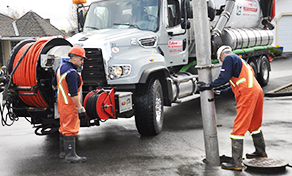
Signs Your Garage Drain Needs Immediate Service
-
Pooling water near exits or stalls
-
Foul odors fromcatch basins
-
Slow drainage in trench systems
-
Tenant complaints about slippery floors
Choosing the Right Drain Cleaning Partner in Vancouver
Experience with Low-Clearance Projects
Look for companies that specialize in low-clearance garage access — not just general drain cleaning. Ask for references from similar buildings.
Fleet Capabilities (Low-Boy Vacs, Hydro Vacs)
The right provider will maintain a fleet that includes low-boy vacuum and hydro vac trucks, designed specifically for parkade service and services like storm drain cleaning near me.
Certifications and Environmental Compliance
Work only with certified professionals who adhere to City of Vancouver drainage bylaws, wastewater regulations, and safety training protocols.
Emergency Service Availability
Does the provider offer 24/7 emergency services? Quick response times can prevent thousands of water damage and liability claims.
Case Study: Restoring Flow to a Downtown Vancouver Commercial Garage
Problem: Recurring Water Pooling in Exit Ramp
A busy office building in downtown Vancouver faces frequent water pooling near the garage exit, causing slip hazards and tenant complaints.
Solution: Low-Boy Hydro Vac with Confined-Space Entry
EdenFlo deployed a low-boy hydro vacuum unit, navigating the 6’8” ramp with ease. Crews used hydro jetting and high suction to clear the trench drain.
Result: Drain Fully Restored Within 4 Hours
The issue was resolved in a single afternoon with no tenant disruption, restoring proper flow and peace of mind for building management.
Final Thoughts: Protect Your Property with Proactive Drain Maintenance
Preventive drain maintenance is the most effective way to avoid unexpected flooding and costly water damage. Scheduling regular service ensures your drainage infrastructure remains in peak condition, extends its lifespan, and reduces risk to tenants and stakeholders.
For reliable low-clearance garage drain cleaning in Vancouver, including catch basin and storm drain services, contact us to schedule your service. Our fleet of low-boy vacuum trucks and expert technicians are ready to keep your property safe, dry, and compliant year-round.
FAQs About Low-Ceiling Garage Drain Cleaning in Vancouver
1. How often should drains in underground parkades be cleaned?
At a minimum, once per year. However, in high-traffic or foliage-heavy areas, semi-annual cleaning is recommended to prevent flooding and debris buildup.
2. Can standard vacuum trucks access low-ceiling garages?
No — most standard vacuum and hydro jetting trucks are too tall to maneuver in areas with 6’8” or lower clearance. Low-boy vacuum trucks are specifically designed for these conditions.
3. What are the signs of a blocked garage drain?
Pooling water, slow drainage, foul odors from catch basins, slippery surfaces, and tenant complaints are common indicators.
4. Are low-boy vacuum services safe for older drainage systems?
Yes — hydro vacuum technology is non-destructive and ideal for delicate PVC pipes or aging concrete infrastructure.
5. Does the City of Vancouver have drainage maintenance regulations?
Yes — local bylaws regulate wastewater disposal, storm drain cleaning, and catch basin cleaning. Professional service providers ensure compliance.
6. How long does a typical low-clearance garage drain cleaning take?
Most services can be completed in less than a day, with many jobs done within 4–6 hours, depending on the size and condition of the system.
7. Can drain cleaning be done without closing the garage to tenants?
Yes — with proper scheduling and low-clearance equipment, services can be completed while keeping parking spaces accessible.

